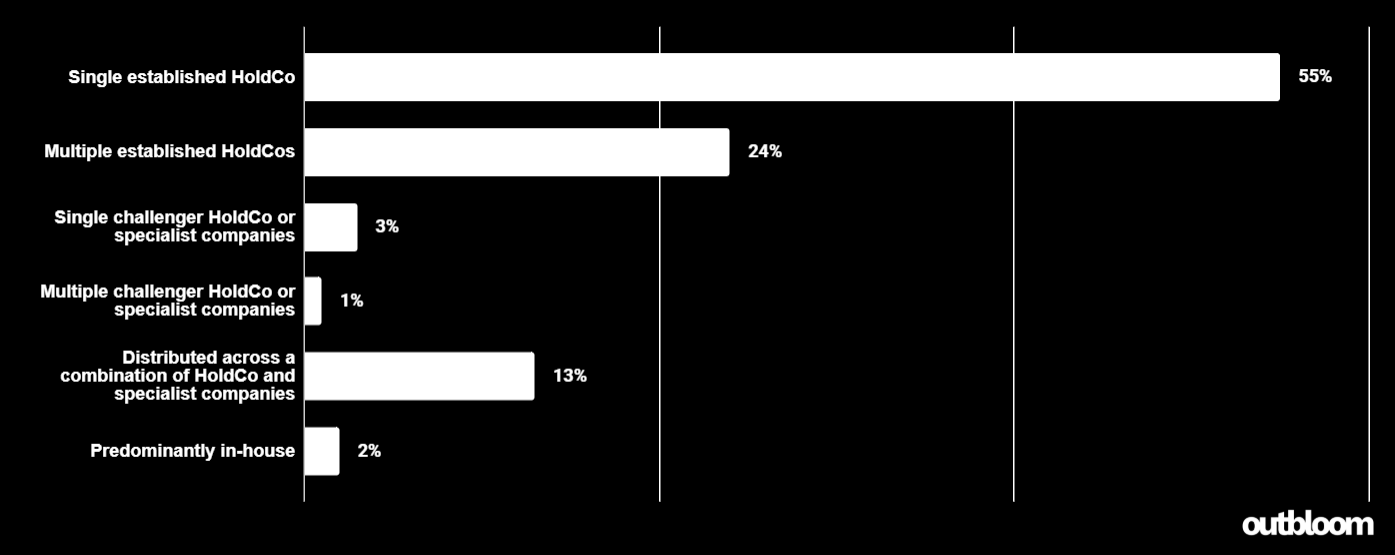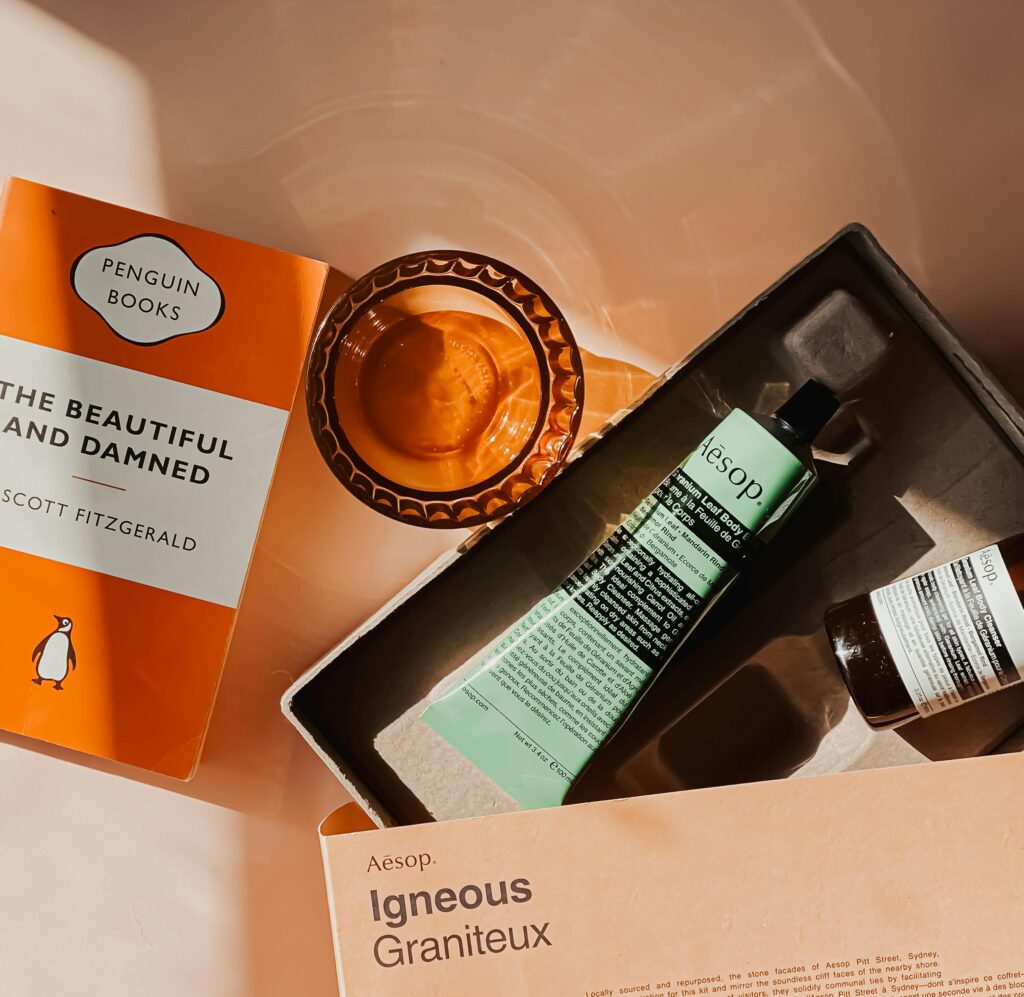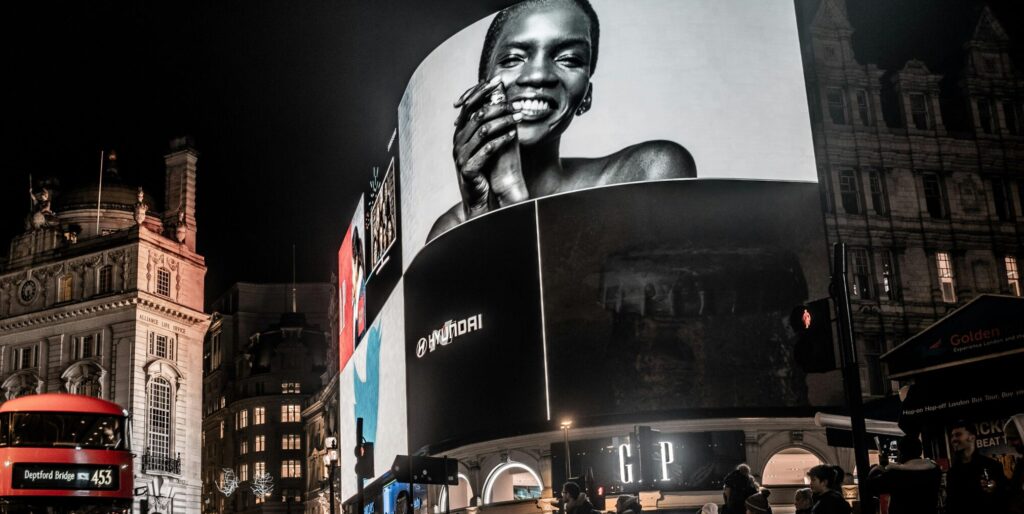Brands are breaking away from traditional media agency models, especially when it comes to Paid Search and Paid Social.
In 2024, only 55% of advertisers still use a single agency for all media channels, according to a joint study by the WFA and MediaSense:

Performance-driven budgets are now being redirected to specialist partners, with brands increasingly choosing multiple agencies based on channel expertise and ROI accountability.
In this post we’ve combined research and the expertise of our team to provide seven reasons behind this shift.
1. The Traditional Agency Model No Longer Adds Up
Large agency groups were built for scale. Their strength was in centralisation, global media deals and full service delivery across channels.
But performance-focused brands are finding that scale doesn’t equal value. When it comes to Paid Search and Paid Social, they want fast turnaround, specialist knowledge, and precise optimisation, not lengthy approval chains or generic strategies.
According to MediaSense and the WFA, 45% of advertisers now want greater flexibility in how they are serviced, with many shifting toward multi-agency or hybrid models as part of broader structural change.
This is not a shift away from agencies altogether, it’s a shift towards focused partnerships that drive performance, especially in biddable media.
2. Paid Search & Paid Social Budgets Are the First to Move
Not all channels are equal when it comes to agency re-evaluation.
Paid Search and Paid Social are the first areas where brands seek specialist help, and the reasons are clear: they’re measurable, fast-moving, and require deep platform expertise.
MediaSense notes that brands are increasingly reallocating budgets from generalist agency teams to dedicated Paid Search and Paid Social specialists, citing better results, clearer reporting, and faster optimisation cycles.
According to the WFA, Paid Search and Paid Social are now the most frequently outsourced media activities, with programmatic and influencer marketing following behind.
Brands expect agencies to act as hands-on partners, not just planners. Specialist performance agencies are designed for this role.
3. Advertisers Are Losing Trust in Layered Agency Models
A major driver behind this shift is transparency.
Large agencies can often operate with unclear fee structures and use internal incentives that don’t always align with the client’s best interests (E.g. Platform kickbacks).
Transparency has been identified as a top priority for advertisers reassessing their agency contracts, as highlighted in the WFA’s Global Media Charter.
According to Marketing Week, one of the biggest frustrations for brands during the pitch process is meeting an agency team during the pitch, only to end up working with a different, lesser qualified team post-pitch.
This approach creates a value gap: fees remain high, but quality and performance can suffer.
4. Brands Are Tired of Paying for Teams They Don’t Need
Another key issue is overhead and inefficiency.
Many large agencies assign expansive teams to accounts, client services, strategists, planners, activation, analysts, but many brands often only need a small team of highly skilled practitioners.
The result? Fees trickle down through layers of management, adding cost without adding value.
According to the WFA, 83% of respondents identified cost efficiencies as the strongest motivation behind the growth in the in-house function.
Within their ‘Project Spring’ report, the WFA writes that brands are increasingly seeking agencies that provide direct access to specialist talent, reflecting a shift towards more specialised partnerships.
Specialist performance agencies take a different approach. Their teams are lean, often flat in structure, and built around direct access to experts who can launch, optimise, and report on campaigns without unnecessary handoffs.
5. Hybrid Execution Is Now the Default
Brands aren’t just ditching agencies, they’re rebalancing the mix.
In the WFA’s In-Housing Benchmark report, 66% of advertisers said they now have some form of in-house media capability.
Among those, 83% cite cost savings, and 76% cite greater agility as key drivers.
Brands often retain ownership of strategy, data, and reporting while outsourcing technical execution to specialist agencies who can act fast and deliver results.
The shift is not about cutting costs at all costs, it’s about paying for outcomes, not overheads.
6. Paid Media Accountability Is Now a Board-Level Issue
Media performance is no longer just a marketing concern. It’s now firmly on the agenda for CFOs and executive teams.
Advertisers are increasingly reporting media performance metrics to a brand’s C-Suite, reflecting a growing emphasis on transparency and accountability in media investments.
This shows a shift towards aligning media budgets with business outcomes.
This scrutiny means that vague delivery models, hidden margins, and poor reporting are no longer tolerated.
Specialist performance agencies are built around this reality. They provide direct access to the people managing spend, and offer the real-time reporting and granular optimisation brands need to justify investment.
In today’s landscape, clarity and responsiveness are just as important as capability.
7. Proving Impact: The Role of Incrementality and Media Modelling
As measurement becomes more advanced, brands are asking tougher questions of their media spend.
In particular, advertisers want to understand incrementality: what portion of sales or leads are directly driven by paid media, and what would have happened anyway?
Brands are increasingly prioritising investment in measurement and modelling capabilities to enhance data-driven decision-making and assess media performance effectively.
Specialist agencies are more likely to support testing frameworks, geo-split methodologies, and holdout strategies designed to measure lift.
They also tend to collaborate more closely with client-side analytics or attribution teams to develop media mix models that reflect channel-specific effectiveness.
This level of technical partnership is becoming a key differentiator. Brands don’t just want to spend, they want to know what works.
Specialist agencies that help prove that are increasingly seen as strategic partners, not just tactical vendors.
The Opportunity for Performance Marketing Agencies
This shift plays directly into the strengths of performance agencies.
Brands are under pressure to show results. They want transparent fees, clear reporting, and specialist thinking. They’re tired of layers, mark-ups, and diluted delivery.
Agencies that lead with platform expertise, senior delivery, and accountability are positioned to win.
As more advertisers revisit their agency rosters in 2025 and beyond, performance agencies that operate transparently and execute exceptionally will continue to gain ground.
The demand is already here. Now it’s about showing brands there’s a better way.



